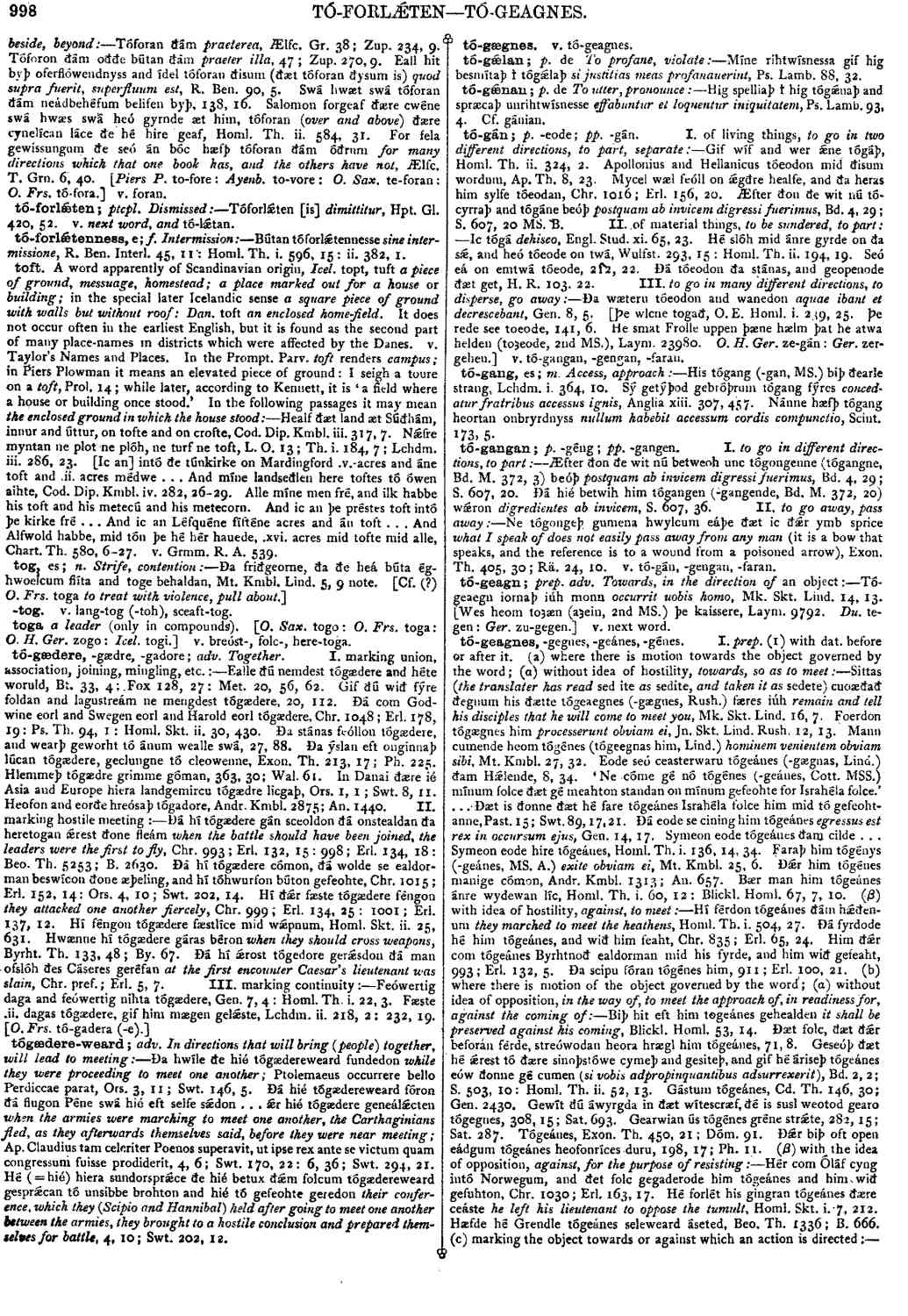tó-gán
- verb [ anomalous ]
-
Gif wíf and wer ǽne tógáþ,
- Homl. Th. ii. 324, 2.
-
Apollonius and Hellanicus tóeodon mid ðisum worduin,
- Ap. Th. 8, 23.
-
Mycel wæl feóll on ǽgðre healfe, and ða heras him sylfe tóeodan,
- Chr. 1016; Erl. 156, 20.
-
Æfter ðon ðe wit nú tócyrraþ and tógáne beóþ postquam ab invicem digressi fuerimus, Bd. 4, 29 ; S. 607, 20 MS. B. II. of material things, to be sundered, to part :-- Ic tógá
dehisco.
- Engl. Stud. xi. 65, 23.
-
Hé slóh mid ánre gyrde on ða sǽ, and heó tóeode on twá,
- Wulfst. 293, 15 : Homl. Th. ii. 194, 19.
-
Seó eá on emtwá tóeode,
- 212, 22.
-
Ðá tóeodon ða stánas, and geopenode ðæt get,
- H. R. 103. 22.
-
III. to go in many different directions, to disperse, go away :-- Ða wæteru tóeodon and wanedon
aquae ibant et decrescebant.
- Gen. 8, 5.
-
Þe wlcne togað,
- O. E. Homl. i. 239, 25.
-
Þe rede see toeode,
- 141, 6.
-
He smat Frolic uppen þæne hælm þat he atwa helden (toȝeode, 2nd MS. ),
- Laym. 23980.
- O. H. Ger. ze-gán : Ger. zer-gehen.] v. tó-gaugan, -gengan, -faran.
Bosworth, Joseph. “tó-gán.” In An Anglo-Saxon Dictionary Online, edited by Thomas Northcote Toller, Christ Sean, and Ondřej Tichy. Prague: Faculty of Arts, Charles University, 2014. https://bosworthtoller.com/30687.
Checked: 0